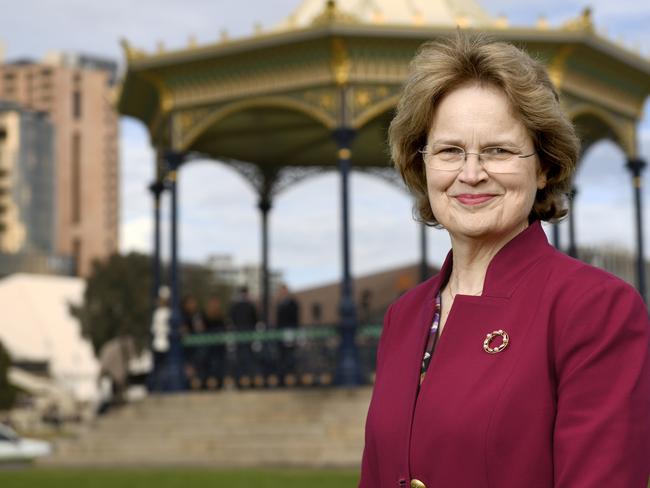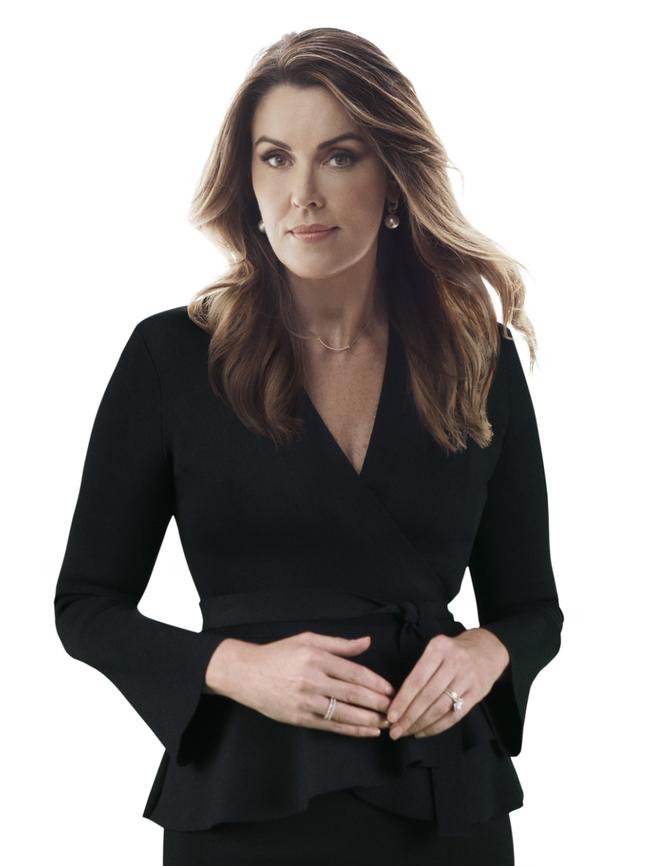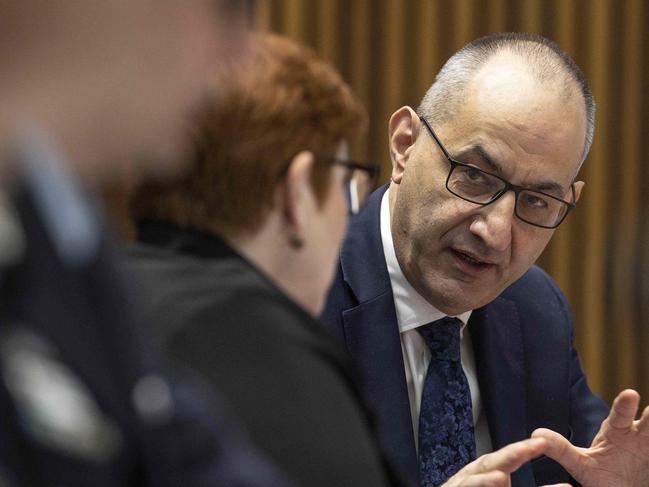Peta Credlin: Powerful bureaucrats need to be held to account
With taxpayer salaries upwards of $900k we need to scrutinise the actions of the faceless bureaucrats who are far more important than most realise, writes Peta Credlin.

Opinion
Don't miss out on the headlines from Opinion. Followed categories will be added to My News.
Now that the Prime Minister is considering a wider public service reshuffle in the wake of the foreign affairs department’s head, Frances Adamson, becoming the next governor of South Australia, it’s time to scrutinise the faceless bureaucrats who are often more powerful-in-practice than the elected politicians.
Outside of the Canberra bubble, almost no one knows their names but, take it from me, these people matter. Especially when ministers turn-over with bewildering rapidity, or are not ‘take-charge types’, departmental secretaries and the deputy secretaries below them can easily become the de facto government of our country.
Since the start of 2013, across Labor and now Liberal governments, we’ve had five prime ministers, five treasurers, five attorneys-general, seven defence ministers, six education ministers, four health ministers and six trade ministers.
Even in the most stable portfolios, foreign affairs and finance, there’ve been two ministers in the seven years since the Coalition was first elected.

By contrast, over the eleven years of the Howard government, we had the same PM, the same treasurer and the same foreign minister.
It’s one of the reasons why so much got done and there was so much consistency – because elected and accountable ministers – had the chance to absorb the detail of their portfolios, establish their own relationships with stakeholders (so able to second-guess some of what the public servants told them was fact) and to drive the unelected bureaucrats to get things done. Unlike their ministers, often politically callow and with no security of tenure, by contrast, departmental secretaries are invariably appointed on five-year contracts after a professional lifetime in the Canberra hothouse.
With taxpayer salaries upwards of $900k, occasionally, they get shifted but the last time any were sacked was when the incoming Abbott government farewelled three for being too close to Labor (although one, of course, was promptly rehired by Malcolm Turnbull).
These public service supremos matter because they can eat weak ministers for breakfast and frustrate the election mandate of governments if they don’t like the policy and don’t want to implement it.

It usually works like this: the moment a new minister is announced, there’s a blizzard of briefings; the newbie minister can easily end up so overwhelmed with minutiae that the proffered way forward – invariably kept back until the minister grasps it with relief – looks like a win of sorts. There’s only one problem – if the new minister lacks conviction and intellectual self-confidence – it’s the public service agenda, rather than the government agenda, that gets run on.
Department secretaries love ministers who fill their offices with mid-level people from their department, like former defence minister Linda Reynolds who was reported to have at least 12 public servants on her staff. The mark of a minister determined to run the show is confining the public servants to keeping the paper moving – like incoming defence minister, Peter Dutton, who has no more than two departmental liaison officers – and filling the other positions with staff who will keep the pressure on the department to perform, rather than cover for them.
Here’s a case in point – when the Abbott government was elected, the overwhelming official consensus to the incoming PM was that stopping the boats was impossible despite it being an emphatic election commitment. One very senior official even warned that it would risk serious conflict with Indonesia. Others claimed that turning boats around might be illegal under international law.

Fair enough, it’s the job of the elected government to receive “professional” and “expert” advice. But it’s the elected politicians who must call the shots given they wear the responsibility for decisions at the ballot box in a way the public servant never does. Confronted with their reasons not to stop the boats, the Prime Minister refused to bend and said we would just try harder. I don’t recall any of them recanting their advice that later was proven so wrong when the people smugglers were eventually drummed out of business.
There was but one exception to this general defeatism, the then-customs head, now home affairs head, Mike Pezzullo, a former Labor chief of staff, but a man who respected a government’s mandate and implemented it with ruthless efficiency.
He always stood out from the Sir Humphrey Appleby types, the ‘Yes Minister’ public servants who passively resist their minister, going slow on everything that they don’t personally agree with, waiting out their minister, in the knowledge that ministers come and go but the public service lives on forever.
So good luck to the PM as he contemplates reshuffling his mandarins. Whomever he chooses, in all the key jobs, he needs officials with a proven capacity to make things happen and a professional readiness to implement his government’s agenda. As anyone who’s been inside the Canberra machine knows, it’s easy to spend money. It’s much harder to make a difference.
WATCH PETA ON CREDLIN ON SKY NEWS, WEEKNIGHTS AT 6PM




